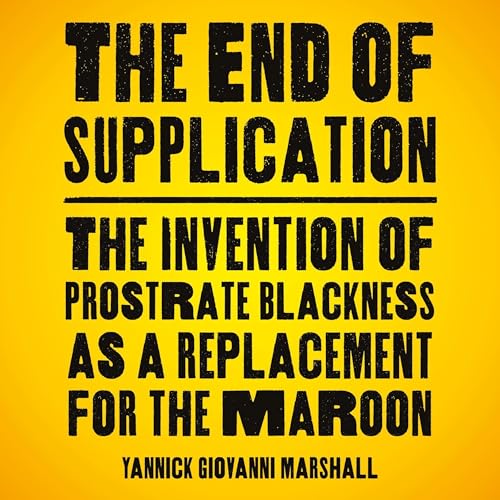
The End of Supplication
The Invention of Prostrate Blackness as a Replacement for the Maroon
Falha ao colocar no Carrinho.
Tente novamente mais tarde
Falha ao adicionar à Lista de Desejos.
Tente novamente mais tarde
Falha ao remover da Lista de Desejos
Tente novamente mais tarde
Falha ao adicionar à Biblioteca
Tente outra vez
Falha ao seguir podcast
Tente outra vez
Falha ao parar de seguir podcast
Tente outra vez
Assine e ganhe 30% de desconto neste título
R$ 19,90/mês após o teste gratuito de 30 dias. Cancele a qualquer momento.
Curta mais de 100.000 títulos de forma ilimitada.
Ouça quando e onde quiser, mesmo sem conexão
Sem compromisso. Cancele grátis a qualquer momento.
Compre agora por R$ 39,99
-
Narrado por:
-
Kenneth Medford
-
De:
-
Yannick Marshall
Sobre este título
The figure of the supplicant negro—a figure famously represented in Josiah Wedgewood’s 18th-century anti-slavery medallion—continues to sideline radical Black anti-colonialist struggle.
The End of the Supplication contends that Black freedom struggles are anti-colonial movements against anti-Blackness and the permutations of slavery, and as such they are ill-served by a dominant Civil Rights discourse that escapes neither the paternalism of white abolitionism nor the caricatures of minstrelsy.
The book traces the roots of the white supremacist ideology behind the disarmed, supplicant-negro figure, and it shows how this ideology continues to inform present liberal presentations of Black people as passive subjects at the mercy of white power, which only reinforces the relatively light consequences white supremacists generally incur for harming Black people. These discussions lead to the conclusion that in our contemporary context of rising, openly white-supremacist politics, the figure of the supplicant negro must be definitively destroyed in order to make way for more effective resistance to anti-Black racism.
This book is a must-read for students and researchers interested in colonialism and decolonization, diaspora studies, critical race and whiteness studies, African American studies, Black studies, and Indigenous studies. It is also of keen interest for anyone frustrated with the still-recurring admonition to “go slow” when it comes to eradicating structural racism.©2025 Yannick Marshall (P)2025 Bloomsbury Publishing Plc
Ainda não há avaliações


